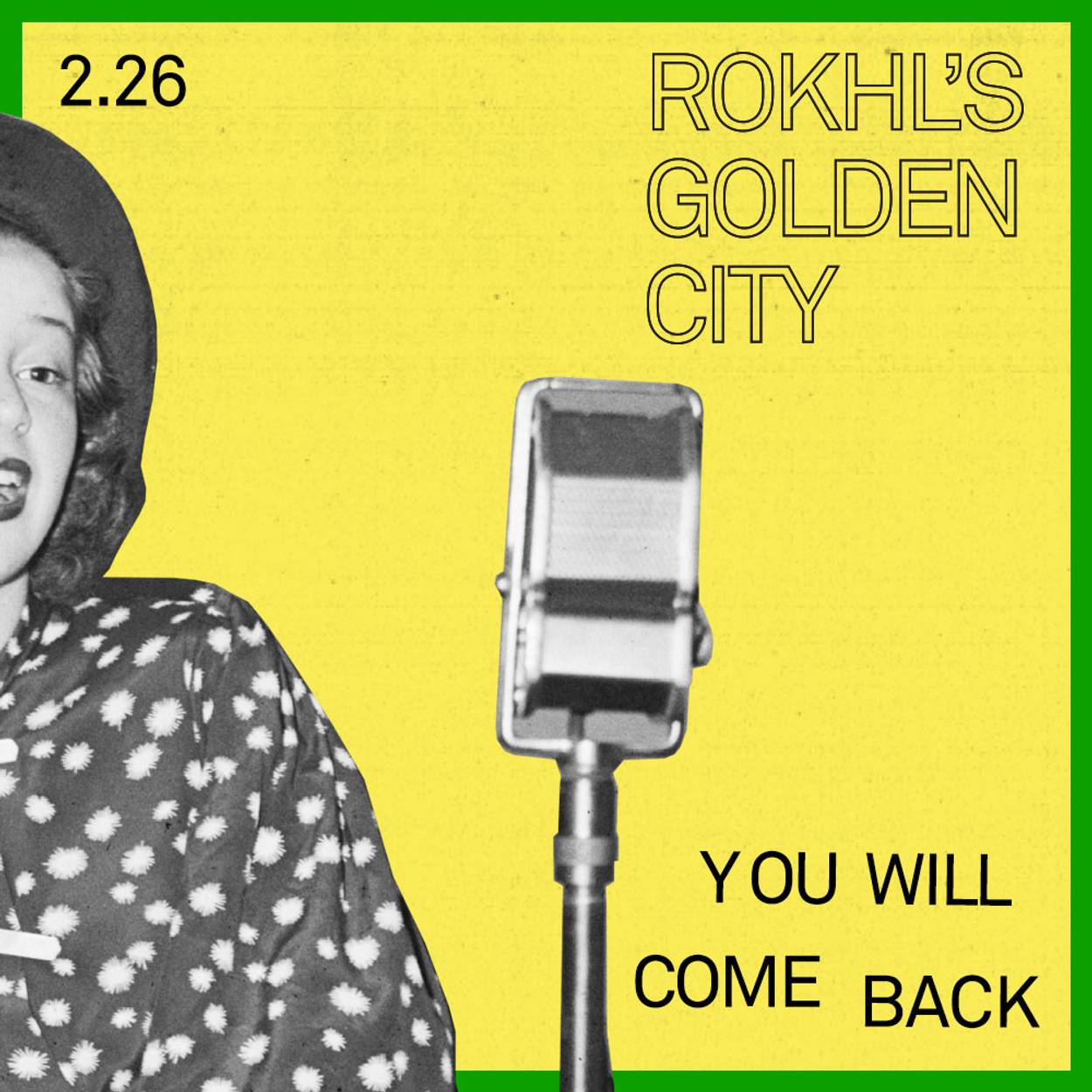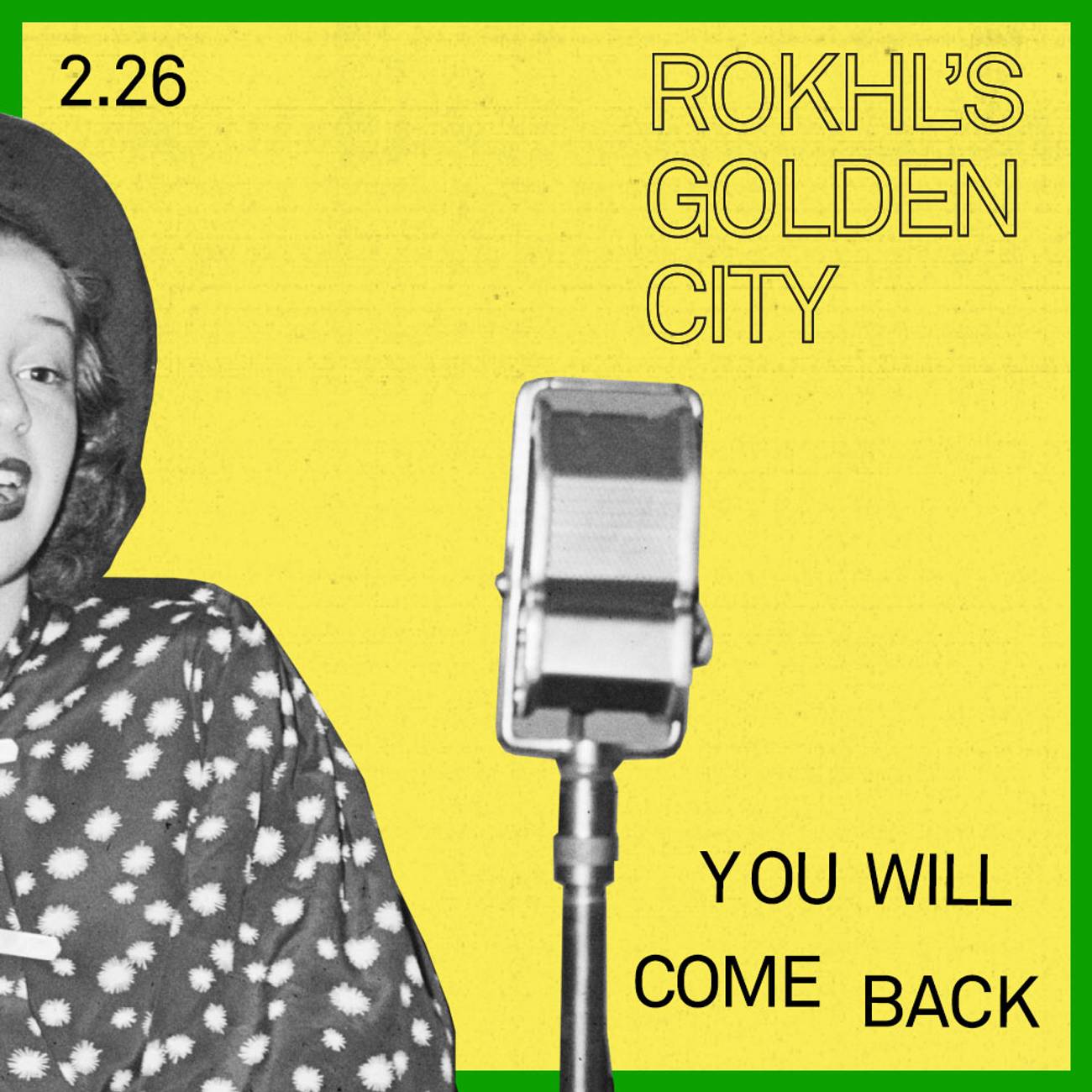Magical Love Songs
Yiddish music that casts a spell

Tablet Magazine

Tablet Magazine

Tablet Magazine

Tablet Magazine
Over the last two years or so, I’ve started intensively researching and teaching on what I’ve come to call “everyday Ashkenazi magic.” We’re not studying the kabbalistic sfires/sefirot. (Too elitist.) We’re not throwing demon bowls. (Wrong time period.) We’re most definitely not making golems. (Golems being the quintessential case of extraordinary Ashkenazi magic.) What interests me is the magic that might have been accessible to my great-great-grandparents, especially my fore-foremothers, the kind of magic performed with side-eyes, spells, and lots of spit.
People are often surprised when I say how much things like magic, divination, and astrology were woven into everyday Jewish life in Eastern Europe. But once you’re looking for it, you start to see it everywhere.
In Rokhl Korn’s poem “Keyner Veyst Es Nisht” (No One Knows It), the narrator speaks of her hidden longing as a piece of magic, a kameye, an amulet, engraved with a shprukh, a spell. Even when she says, “I carry your glance with me,” my thoughts are drawn to the power of the ayin-hore, the Evil Eye, which can bewitch us, much like the glance of a lover, with only the lightest of touches.
Keyner veyst es nisht, afile du aleyn—
Az vu ikh zol nisht geyn,
trog ikh mit zikh dayn blik,
Vi a kameye mit
an ayngekritstn shprukh,
Dem shprukh tsum goyrl azoy noent
un azoy vayt fun glik.
No one knows it, not even you
That wherever I go,
I carry your glance with me,
Like an amulet with
an engraved spell,
The spell for a fate
so near and so far.
Polina Shepherd and Lorin Sklamberg sing “Keyner veyst es nisht” on their gorgeous album 150 Voices, which also features the talents of not one but five vocal choirs. Below is a slightly different, just as gorgeous, live arrangement featuring Shepherd and Sklamberg:
For a completely different, delightfully samba-tinged take on the same song, Kateryna Ostrovska recorded this version on her 2022 record Blondzhendike Lider.
Love is its own kind of magic, and its own kind of madness. In “Vus a mul brent dus fayer greser” (Once Upon a Time the Fire Burned Brighter), a woman complains bitterly to the man who has spurned her for another. She threatens to stab herself, to which the man smugly reminds the woman that he is now luckily engaged to another. On the Yiddish Song of the Week blog, Itzik Gottesman notes that the version sung by his grandmother Lifshe Schaechter-Widman innovated the final line, where the woman tells the man, “dayn sheynkeyt vet fargeyen / vi di rose afn frayen feld” or “your beauty will fade like the dew in the open field.”
Last year, scholar-composer Piedmont blues guitar master Jeremiah Lockwood released an EP of songs inspired by the repertoire of Schaechter-Widman. Once Upon a Time the Fire Burned Brighter was recorded with drummer Ricky Gordon, under their duo name, Gordon Lockwood. The vibe is completely different than that of Schaechter-Widman’s recording, and yet it makes complete sense. Lockwood’s English-language interpolations, understated and sexy, hint at passions lurking underneath the gentle musical setting.
Lockwood sings another from Schaechter-Widman’s repertoire with “In My Heart Burns a Fire.” Here, a secret love threatens to consume the lover from the inside. The dark folkloric imagery is key:
In my heart burns a fire
But I don’t see any smoke around.
I thought you were an angel from the heavens
But in the end, you were my angel of death.
The prodigiously talented Zalman Shneour wrote, among his many varied works, the text that became the song “Margaritkelekh“ (Daisies). And if you think the “Baby, It’s Cold Outside” discourse is bad, you don’t want to know from “Margaritkelekh” discourse, in which a young woman picking flowers in the woods is seduced by a dark-haired man and then left alone, once again.
Rather, let’s talk about Shneour’s “Royte Epl, Grine Shotns.” The themes and imagery are similar to “Margaritkelekh,” with its hazy, dreamy, forbidden forest encounter. A great unaccompanied vocal performance leaves just enough up to the listener’s imagination, as Jacob Gorelik’s beautiful performance of “Royte Epl” does over at the Yiddish Song of the Week blog.
Red apples, green shadows,
Grass—velvet, skies—silk.
And a resounding river laughter
streams from far away.
Come my girl, beautiful angel!
The fruits tease us, the branches snap.
An apple for me, an apple for you
and a stealthy kiss on your neck.
Royte epl, grine shotns,
grozn—samet, himlen—zaydns …
Un a hilkhik taykh-gelekhter
gist zikh, trogt zikh fun der vaytns.
Kum mayn meydl, malekh sheyne!
Frukhtn reytsn, tsvaygn knakn …
Mir an epl, dir an epl
un a gneyvish kush in nakn.
But a beautiful musical setting can conjure up a whole world. Levyosn’s 2023 recording of “Royte Epl” does just that.
Parents are often just outside the margins of Yiddish love songs, (as in “Margaritkelekh”), if they’re not already right there in the middle, much to the chagrin of their children. “Ikh vil nisht aza khosn” (I Don’t Want Such a Bridegroom) sits in this more lighthearted take on intergenerational conflict. A daughter finds a reason to refuse each match proposed by her mother. She’s embarrassed by one who only speaks Yiddish. Another one is called Yankl, a name she can’t stand.
But then there is Vladek, an oysnam, an exception. He could be the one! The only problem is, his mother’s name is Sore (Sara) and that is the name of the song’s narrator, too.
But wait. What’s the problem with them having the same name? There was a long-standing custom/superstition not to marry someone with the same name as your parent. Why? Here the malekh hamoves, the Angel of Death, makes another appearance. On the one hand, obviously, the Angel of Death was understood to hold a power before which no mortal was immune. (Whether it’s love or death, none of us are immune.)
On the other hand … he is surprisingly easy to fool, and thus hold off, at least for a time. We find in the 13th-century Sefer Hasidim, for example, the story of a young student and an older teacher with the same name, who both get married in the same week. The Angel of Death comes for the older teacher, but, happening upon the young bridegroom with the same name first, takes him instead. We can reason out from there, that if a woman marries a man whose mother has the same name as she does, they are coming dangerously close to tempting fate by presenting the Angel of Death with two women in the same family with the same name, but, presumably, different allotments of years left to them. Better to be on the safe side.
Love. It’s magic. It’s madness. It’s meshuge. It’s maddening. There’s something delicious in the confident simplicity of Forshpil’s jazzy setting of “Hob Dikh Lib” (I Love You). I love you, I love you, yeah, yeah, but, what’s even better is how the song ends with the ecstatic chant of those who know that when it’s right, it’s right:
Zol er forn, zol er forn
Zol er zukhn glik
Az du vest zayn mayn basherter
Vestu kumen tsurik
He should go, he should go
He should seek happiness
If you are my soulmate
You will come back
MORE LOVE SONGS FROM THE ARCHIVE: YIVO’s Ruth Rubin Legacy Archive has a playlist of field recordings of love songs or you can listen to the Folkways album Yiddish Love Songs sung by Ruth Rubin, accompanied by Fred Hellerman, on YouTube.
ALSO: Jeremiah Lockwood and Jessica Roda will take part in a book talk and performance called “Music, Gender, and Jewish Orthodoxy in North America.” Cantor Yoel Kohn and Malky Goldman will also perform. “Through ethnography and media analysis, Lockwood and Roda offer unique insights into the vibrant masculine and feminine art worlds of Hasidic and Litvish-Yeshivish Jews today.” March 6 at 7 p.m. at YIVO. More information here … The program for Seattle Yiddish Fest looks pretty fabulous, with live music, lectures, and visual art. Special fest guests include Michael Wex and Susan Hoffman-Watts. March 7-10, check their website for more details … This March will see the debut of a new song cycle called “Wild Burning Rage and Song: Replies to Scottsboro.” The program is “based on 1930s Yiddish and English poems about racism in America” and is “the result of a year-long collaboration with musicians Anthony Russell and Heather Klein and literary scholar Amelia Glazer,” as well as composer and pianist Uri Schreter. You can see it in Boston on March 10, Philadelphia on March 12, and New York on March 14. Not to be missed … My friends at the Jewish Languages Project are co-organizing a Jewish Silk Road walking tour of the borough of Queens, March 17, 11 a.m.-2 p.m. Kosher lunch included, limited space, tickets required … Two of my favorite, Boston-based, klez-world musicians, Hankus Netsky and Derek David, will appear on the program for the New Gallery Concert Series, “Legacy.” March 23 at 8 p.m. Pickman Hall at the Longy School of Music of Bard College, 27 Garden St., Cambridge, Massachusetts. More information here … Kids and parents will enjoy the upcoming Klezmer Brunch Revival: Purim Edition, with Pharaoh’s Daughter. Sunday, March 24, noon at pinkFROG cafe, 221 North 9th St., Brooklyn. Get your tickets now before they sell out … Are you anywhere near Vienna? Yung Yidish Wien is a newly launched offshoot of the original Yung Yidish in Tel Aviv’s old bus station, a “space for Yiddish language and culture in the heart of Leopoldstadt.” Check out their website for more information on upcoming programs.
Rokhl Kafrissen is a New York-based cultural critic and playwright.